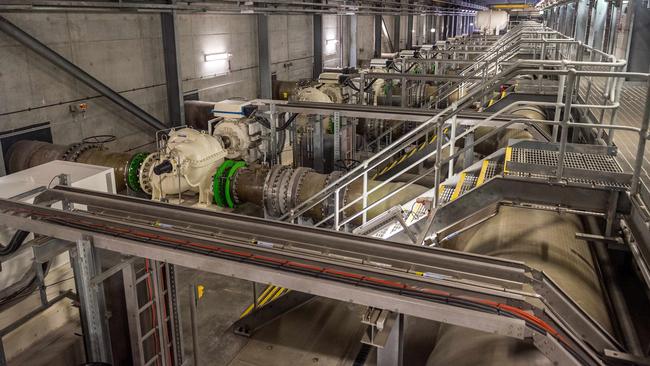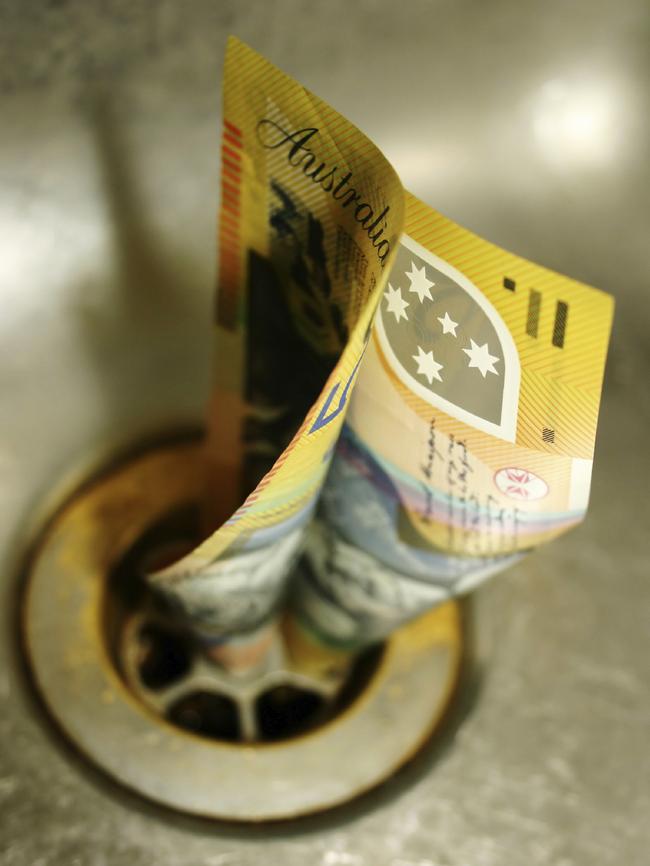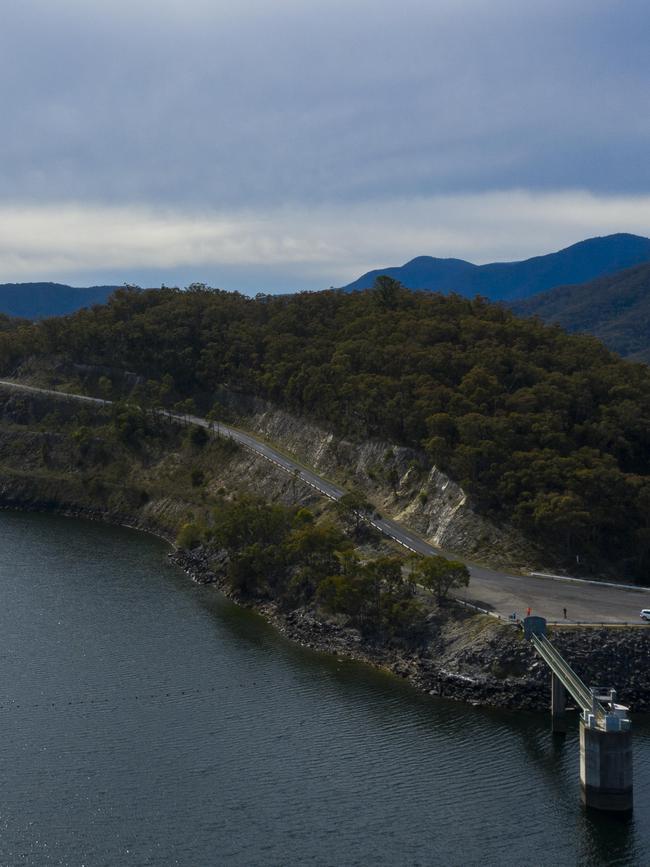Water bills to rise as desal and other manufactured supplies dominate a drier future
There’s warnings a drying climate will push up household bills, triggering the need for alternate sources of water.

Victoria
Don't miss out on the headlines from Victoria. Followed categories will be added to My News.
Household bills are expected to rise over the next decade to pay for new sources of water the government says will be needed to avoid “running out” long-term.
The stark warning is issued in the final government report on a Central and Gippsland Region Sustainable Water Strategy, and predicts manufactured water – such as from desalination plants – will dominate supply options in Victoria later this century.
Within 10 years, additional supplies will already be necessary, including from recycling or treatment of stormwater and tanks’ rainwater.
The report says “while there is a cost to run the desalination plant and secure our water supplies, the economic costs of severe water restrictions or water shortages are far worse”.
“The cost of inaction if we don’t start transitioning to more manufactured water supplies is too great and could result in major cities and towns across the region running out of water.”
It also says “further work is required to identify and assess the viability of options for additional desalination capacity and significant community engagement and input will inform any future decisions”.


“We need to progress planning activities for desalination options now so we can meet critical urban supply issues when needed and avoid rushed execution during a crisis.”
The push for more desal plants to be planned and built is likely to be divisive, with Labor and the Coalition already clashing over when to switch on the Wonthaggi plant.
Billions of dollars have been spent building and operating that facility, which Labor says increased storages by 24 per cent since 2016.
The Coalition has committed to only switching on the plant when storages dip below 60 per cent, arguing other cheaper supply options should be pursued first.
Each order of desal water costs tens of millions of dollars.
The report also notes new desal options on top of Wonthaggi are likely to be contested and expensive.
“Although the potential for large volumes exist, opportunities may be limited by the number of suitable sites along the coast and high costs,” it says.
Opposition water spokesman Danny O’Brien said the Andrews Government “needs to come clean on how much water bills will rise under its new water plan and reveal whether it intends to build a second desalination plant”.
Water Minister Harriet Shing said the report showed a “pathway to secure the region’s water future over the next 50 years” and was designed to meet “the challenges of climate change and increased demand for water”





